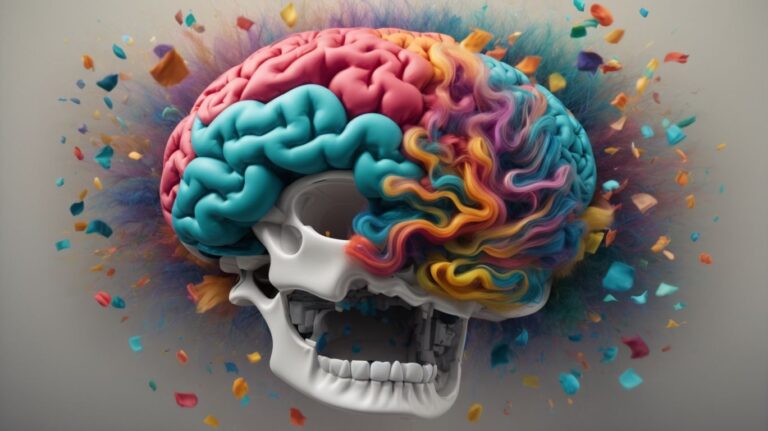Have you ever heard of the Mozart Effect? This intriguing concept suggests that listening to Mozart’s music can have a positive impact on cognitive abilities and memory. But where did this idea come from, and is there any scientific evidence to support it?
In this article, we will dive into the origins of the Mozart Effect, explore the claims surrounding it, examine the studies that have been conducted, and discuss the possible explanations for this phenomenon. So, grab your headphones and let’s explore the fascinating world of the Mozart Effect together.
Contents
- 1 What Is the Mozart Effect?
- 2 What Are the Claims of the Mozart Effect?
- 3 What Are the Studies on the Mozart Effect?
- 4 What Are the Possible Explanations for the Mozart Effect?
- 5 How Is the Mozart Effect Used in Real Life?
- 6 Frequently Asked Questions
- 6.1 What is the Mozart Effect and how is it related to psychology?
- 6.2 What are the potential benefits of exploring the Mozart Effect in psychology?
- 6.3 Is the Mozart Effect supported by scientific evidence?
- 6.4 Can the Mozart Effect have any negative effects on individuals?
- 6.5 How can the Mozart Effect be incorporated into psychological interventions and treatments?
- 6.6 Are there any other factors that can influence the effectiveness of the Mozart Effect?
What Is the Mozart Effect?
The Mozart Effect refers to a phenomenon where listening to music, particularly Mozart’s compositions, is believed to enhance cognitive abilities, intelligence, and brain function.
This concept gained popularity after a study published in 1993 suggested that listening to Mozart’s music for a brief period could boost spatial-temporal reasoning skills. While the initial research focused on the short-term effects, subsequent studies explored the long-term benefits on memory, focus, and problem-solving abilities. The idea behind the Mozart Effect is rooted in the belief that complex classical music can stimulate neural pathways in the brain, leading to improved cognitive performance and overall mental acuity. However, it is important to note that the exact mechanisms behind these effects are still under debate among researchers.
What Are the Origins of the Mozart Effect?
The origins of the Mozart Effect can be traced back to a study conducted by cognitive psychologist Francis Rauscher, which gained widespread attention and sparked the exploration of the relationship between music and cognitive abilities.
Rauscher’s groundbreaking study, published in 1993 alongside Shaw and Ky in the prestigious Nature journal, revealed that college students who listened to Mozart’s Sonata for Two Pianos in D Major for a mere 10 minutes scored higher on spatial reasoning tests compared to those who stayed in silence or listened to relaxation instructions.
This unexpected correlation between Mozart’s music and temporary enhancement in cognitive function not only fascinated the scientific community but also captured public imagination, leading to a surge in interest and subsequent research on how music impacts the brain.”
What Are the Claims of the Mozart Effect?
Claims regarding the Mozart Effect suggest that listening to Mozart’s music can enhance intelligence, improve cognitive abilities, and aid in the cognitive development of children.
Studies have shown mixed results when it comes to the actual impact of the Mozart Effect on intelligence. Some researchers argue that the temporary boost in spatial-temporal reasoning after listening to Mozart’s music is short-lived and not a reliable indicator of increased overall intelligence.
Proponents of the Mozart Effect often highlight its potential benefits for young children, theorizing that exposure to classical music at an early age can have a positive influence on cognitive development.
Can Listening to Mozart Make You Smarter?
The debate around whether listening to Mozart can make individuals smarter centers on the impact of music on intelligence, cognitive function, mental performance, as studied by cognitive psychologists and researchers.
Studies have shown mixed results, with some early research suggesting a temporary boost in spatial-temporal reasoning after listening to Mozart’s music, known as the Mozart Effect.
Further studies have failed to replicate these findings consistently, raising doubts about the long-term cognitive benefits attributed solely to Mozart’s compositions.
Many experts emphasize that cognitive enhancement through music involves a variety of genres, rhythms, and personal preferences, rather than a single composer or piece.
Does the Mozart Effect Improve Memory and Cognitive Abilities?
Research has investigated whether the Mozart Effect can improve memory, cognitive skills, brain activity, and spatial tasks through controlled studies and experiments.
Studies exploring the impact of music, specifically compositions by Wolfgang Amadeus Mozart, on cognitive abilities have revealed interesting findings. For instance, a notable experiment conducted by researchers demonstrated a temporary enhancement in spatial-temporal reasoning after listening to Mozart’s music. This phenomenon has sparked discussions on the potential benefits of incorporating musical stimuli into learning and cognitive enhancement programs.
What Are the Studies on the Mozart Effect?
Various studies have been conducted by cognitive psychologists and researchers to explore the Mozart Effect and its potential beneficial effects through high-quality and controlled research methodologies.
These studies aim to delve into the impact of listening to Mozart’s music on cognitive functions, such as spatial-temporal reasoning and memory retention. The research typically involves controlled experiments where participants are exposed to Mozart’s compositions or other types of music, followed by cognitive tests to assess any immediate or long-term effects.
Along with behavioral observations, neuroimaging techniques like fMRI and EEG are often employed to study brain activity patterns associated with music perception and cognitive processing. This multidimensional approach contributes to a deeper understanding of how music influences the human mind and cognition.
The Original Study by Rauscher et al. (1993)
The original study by Rauscher et al. in 1993 was pivotal in examining the impact of music, specifically Mozart, on cognitive development, particularly in infants, laying the foundation for the Mozart Effect phenomenon.
The study demonstrated that exposure to Mozart’s music resulted in a temporary increase in spatial-temporal reasoning, a crucial cognitive skill. This finding sparked significant interest in the potential cognitive benefits of music, especially during early developmental stages.
Rauscher and her colleagues also highlighted the importance of environmental enrichment through music, suggesting that early exposure to music could have long-lasting effects on cognitive abilities.
Replication Studies
Subsequent replication studies have aimed to validate and expand upon the findings of the original research, examining the beneficial effects of music on cognitive skills and cognitive benefits associated with the Mozart Effect.
Replication studies play a crucial role in science by providing a robust method to confirm or challenge the validity of initial results. Through the process of replication, researchers can enhance the reliability of findings and identify any potential discrepancies that may have arisen in the original study. In the context of the Mozart Effect, replication studies allow for the exploration of the underlying mechanisms behind the observed cognitive benefits of music, shedding light on the specific pathways through which music impacts cognitive functioning.
Criticism of the Studies
Criticism of studies related to the Mozart Effect has centered on the methodologies employed, the interpretation of results, and the impact of music on cognitive abilities as assessed through intelligence tests.
One common criticism revolves around the lack of standardization in study methodologies. Researchers use diverse approaches, making it challenging to compare outcomes across different experiments.
The interpretation of results has been questioned, with critics arguing that some studies may have overemphasized the significance of music’s effects on cognitive abilities, leading to inflated claims.
The validity of music’s impact on intelligence tests has also been scrutinized, with concerns raised about extraneous variables that could influence test results, such as participant mood or motivation.
What Are the Possible Explanations for the Mozart Effect?
Several theories have been proposed to explain the Mozart Effect, ranging from the impact of emotional arousal on cognitive function to the notion of a short-lived pleasant music effect influencing cognitive abilities.
Many researchers have delved into the idea that music, particularly intricate compositions like those of Mozart, can spark emotional responses that enhance brain activity.
One well-known hypothesis suggests that the complex patterns in Mozart’s music may stimulate neural pathways associated with spatial-temporal reasoning, which could explain the temporary boost in cognitive performance observed after listening.
It is argued that the pleasurable experience of listening to Mozart, or music in general, can lead to increased dopamine release in the brain, triggering improved focus and concentration.
The “Mozart Effect” as a Placebo Effect
One interpretation of the Mozart Effect posits it as a placebo effect, suggesting that the perceived cognitive benefits and spatial reasoning enhancements may stem from placebo responses rather than direct music-induced effects.
Essentially, proponents of this theory argue that the improvements observed in individuals after listening to Mozart’s music are more psychological in nature, influenced by the belief that such exposure will enhance cognitive functions and spatial awareness.
The placebo effect, known for its ability to produce real physiological changes solely based on a person’s expectations, plays a pivotal role in this context, as the mere anticipation of positive outcomes can trigger cognitive processes, leading to perceived enhancements in mental capacities.
The Role of Arousal and Mood
The influence of arousal and mood on the Mozart Effect has been a subject of interest, particularly regarding emotional arousal’s impact on cognitive function in diverse populations, including human infants.
Studies have revealed that listening to Mozart’s music can induce a temporary improvement in cognitive abilities, often referred to as the Mozart Effect. This phenomenon is not limited to adults but is also observed in children and even infants.
Regarding cognitive development in infants, emotional arousal can play a critical role in enhancing their learning and memory processes. The soothing and harmonious compositions of Mozart might stimulate positive emotional states, which in turn, could lead to improved cognitive performance in infants.
The Influence of Environmental Factors
Research has examined the role of environmental factors in mediating the Mozart Effect, particularly in relation to health outcomes, cognitive improvement, and the potential benefits of music in various settings.
Studies have shown that environmental characteristics, such as noise levels, lighting, and overall ambiance, can significantly influence the effectiveness of music-based interventions. For instance, a calming environment with soothing music may enhance relaxation and stress reduction, leading to improved well-being. On the contrary, a distracting or noisy setting could hinder the desired cognitive effects of music. Research indicates that natural environments, such as parks or gardens, have a positive impact on mental health and cognitive function when combined with music therapy.
How Is the Mozart Effect Used in Real Life?
The Mozart Effect finds practical applications in real-life scenarios, from enhancing learning and education through music to therapeutic uses like music therapy, leveraging its cognitive benefits in an engaging and effective manner.
When integrated into the realm of education, the Mozart Effect has shown promising outcomes by stimulating brain activity, improving focus, and enhancing memory retention through the power of musical compositions. Teachers and educators are harnessing the harmonious tunes to create a conducive learning environment that not only fosters creativity but also aids in information retention and comprehension.
In the field of therapy, the application of the Mozart Effect has been transformative, particularly in music therapy. Utilizing Mozart’s compositions, therapists tap into the profound emotional and psychological impact of music to alleviate stress, anxiety, and even pain in individuals undergoing various forms of therapy.
In Education and Learning
The Mozart Effect is utilized in education and learning settings to promote cognitive development in children, integrating music, engaging activities, and musical games to enhance learning experiences.
Research has shown that exposure to music, particularly compositions by Wolfgang Amadeus Mozart, can have a positive impact on spatial-temporal reasoning and memory retention in young minds.
By incorporating musical elements into lesson plans, teachers can create more dynamic and interactive learning environments that cater to different learning styles and abilities.
The integration of music-based strategies like rhythmic exercises or singing can stimulate creativity and improve focus and concentration among students.
In Therapy and Treatment
In therapeutic settings, the Mozart Effect is harnessed through music therapy to enhance health outcomes, particularly for individuals like Alzheimer patients, where it aids in cognitive improvement and well-being.
The impact of Mozart Effect in music therapy extends beyond just cognitive enhancement; it also contributes to emotional regulation and stress reduction in patients. Studies have shown that listening to Mozart’s music can stimulate brain activity, making it beneficial for those with neurodegenerative conditions like Alzheimer’s. This phenomenon is often linked to the structural complexity and rhythmic patterns found in Mozart’s compositions, which engage various regions of the brain simultaneously. The calming and harmonious nature of Mozart’s music creates a soothing environment that promotes relaxation and overall mental health.
In Popular Culture
The Mozart Effect has permeated popular culture, showcasing its cognitive benefits through high-quality studies and offering an enjoyable way to engage with music for cognitive enhancement.
In today’s society, it is fascinating to observe how the concept of the Mozart Effect has been integrated into various facets of everyday life. One can see its influence not only in educational settings but also in wellness programs and even in child development strategies. The portrayal of the Mozart Effect in popular media has further solidified its place in the collective consciousness, highlighting the power of music in stimulating cognitive functions. Through a combination of soothing melodies and intricate compositions, individuals have found a path to potential cognitive improvement and mental well-being.
Frequently Asked Questions
The Mozart Effect is a phenomenon where listening to music, particularly classical music, is believed to enhance cognitive abilities. In psychology, this effect has been studied to determine its impact on factors such as memory, attention, and problem-solving skills.
What are the potential benefits of exploring the Mozart Effect in psychology?
Exploring the Mozart Effect in psychology can potentially lead to a better understanding of how music can impact cognitive functioning. This can have practical applications in areas such as education, therapy, and brain research.
Is the Mozart Effect supported by scientific evidence?
While the idea of the Mozart Effect has gained popularity, there is limited scientific evidence to support its claims. Several studies have shown mixed results and more research is needed to fully understand the relationship between music and cognition.
Can the Mozart Effect have any negative effects on individuals?
There is no evidence to suggest that the Mozart Effect can have negative effects on individuals. However, researchers caution against using it as a sole method for improving cognitive functioning and recommend incorporating other strategies as well.
How can the Mozart Effect be incorporated into psychological interventions and treatments?
Some psychological interventions and treatments, such as music therapy, already utilize the Mozart Effect as a means of improving cognitive functioning. However, more research is needed to determine the most effective ways to incorporate it into these interventions.
Are there any other factors that can influence the effectiveness of the Mozart Effect?
Yes, other factors such as individual differences, type of music, and duration of exposure can also play a role in the effectiveness of the Mozart Effect. This highlights the need for further research to better understand this phenomenon in psychology.



